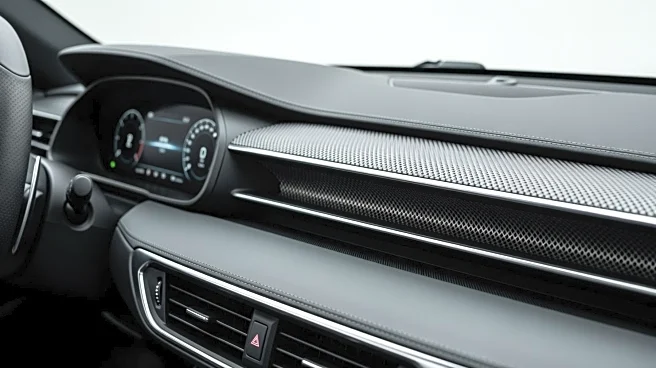What's Happening?
SIBUR, Russia's leading producer of synthetic materials, has announced the development of its own grades of polyols, which are essential organic compounds used in the production of polyurethane foam for the automotive industry. This development is part
of SIBUR's broader strategy to innovate within the automotive sector, including the creation of a polyurethane foam system for car seats that enhances elasticity, durability, and vibration absorption. The company has already begun delivering this system to automotive component manufacturers as of spring 2025. SIBUR is also exploring the replacement of metal fuel tanks with polymer alternatives in buses, showcasing its commitment to advancing material technology in the automotive field. Over the past two years, SIBUR has introduced more than 30 new products and over 300 solutions across various industries, including medicine and packaging.
Why It's Important?
The development of new polymer components by SIBUR is significant for the automotive industry as it promises to enhance the performance and sustainability of vehicle components. By creating materials that are more elastic and durable, SIBUR is contributing to the production of safer and more efficient vehicles. This innovation could lead to cost savings for manufacturers and potentially lower prices for consumers. Additionally, the shift from metal to polymer fuel tanks could reduce vehicle weight, improving fuel efficiency and reducing emissions. SIBUR's advancements also position the company as a competitive player in the global market, potentially increasing its influence and market share in the automotive sector.
What's Next?
SIBUR plans to continue its innovation trajectory by constructing a catalyst production facility in Kazan, which will enable the company to produce additives that enhance the properties of polymers. This facility is expected to complete SIBUR's innovation cycle, from research to industrial production, allowing for faster and more efficient development of advanced synthetic materials. The company's ongoing efforts to develop new polymer grades and solutions, including those using recycled materials, suggest a continued focus on sustainability and innovation. Stakeholders in the automotive industry, including manufacturers and suppliers, will likely monitor SIBUR's progress closely, as these developments could influence future material choices and production processes.















